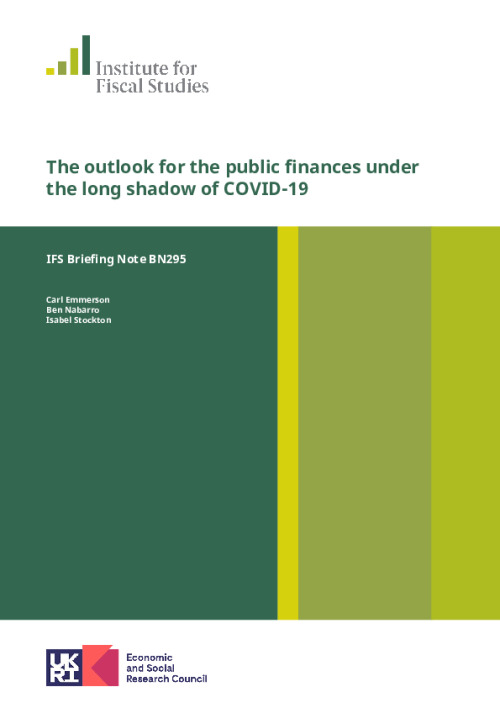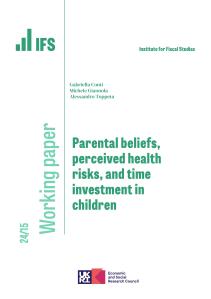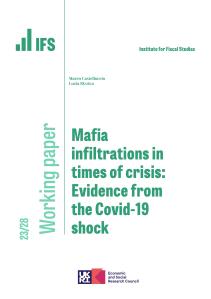It is clear that the COVID-19 outbreak – and the public health response to it – will dramatically reduce economic activity in the second quarter of 2020. This in turn will depress tax receipts and add to government spending, increasing government borrowing and in turn adding to government debt. The package that, appropriately, the government has announced to help support public services, households and employers will also have the direct impact of increasing borrowing. A key issue is how quickly – and how fully – the economy, and with it the public finances, recover over subsequent years.
This report sets out three scenarios for the outlook for growth over the next five years (Section 2) and describes what in turn these might mean for government borrowing (Section 3) and government debt (Section 4). Finally, in Section 5, we provide some guide to the appropriate fiscal policy response in the short-term, where essentially additional borrowing that will boost subsequent growth is likely to be beneficial given very low interest rates, and in the longer term, where a combination of tax rises and accommodating an elevated level of debt for decades is, perhaps, the most likely outcome.
A podcast featuring authors from this report is available here.
Funding from the UKRI under the grant ‘Supporting fiscal policy through the crisis’ (ES/V00381X/1) and from the ESRC-funded Centre for the Microeconomic Analysis of Public Policy (ES/M010147/1) is gratefully acknowledged.











